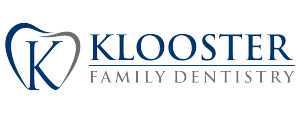A typical dental care routine includes brushing, flossing and rinsing with mouthwash.
You probably know a little bit about some of the tools we use for that routine. For example, toothpaste comes in all different types: whitening, desensitizing, anti-decay, anti-plaque, natural, etc. Toothbrushes can be soft, medium, or hard-bristled. Floss comes in picks, traditional floss, and now water flossers are the new thing.
But what do you know about your mouthwash? People tend to be more loyal to a brand rather than focusing on the benefits each one provides. Here are three things you did not know about your rinse that may help you make a more informed decision.
- Types of Mouthwash
According to the American Dental Association (ADA), there are two types of mouthwash: Cosmetic and Therapeutic. Each serves the user a different purpose. While cosmetic mouthwash is made purely to temporarily freshen your breath, therapeutic mouthwash contains ingredients that can help with the following dental health problems:
- Cetylpyridinium chloride, to help reduce bad breath,
- Essential oils, to reduce plaque,
- Fluoride, to prevent decay, and
- Peroxide, for whitening.
All of these ingredients work together with brushing and flossing to keep your teeth clean and healthy. While many therapeutic mouthwashes can be obtained over the counter, some require a prescription. Be sure to consult with your dentist about what mouthwash would be the best for you.
- Mouthwash Does Not Have To Burn
Most mouthwashes contain alcohol, which causes the burning sensation many of us are used to. Alcohol is used in mouthwash because it is effective in killing the bacteria that can lead to gum disease, decay, and bad breath. However, many people prefer not to use mouthwashes with alcohol because the burn is too painful. The good news is that mouthwash does not have to burn. Many brands offer alcohol-free mouthwash that still contains ingredients to help keep your teeth strong and prevent decay and disease but without the burning sensation. Some people like the burn because they feel like it means the mouthwash is working, but alcohol is proven to dry your mouth out, which can potentially cause health problems in the long run. Again, consult with your dentist before making a decision, but ultimately the choice depends on your personal needs and preference.
- Rinsing is Not a Substitute
Rinsing should be done in addition to brushing and flossing your teeth. Mouthwash should not be used as a substitute for brushing OR flossing. Not brushing or flossing your teeth can lead to tooth decay, gingivitis, and other serious problems. Mouthwash alone will only mask one problem: bad breath. Brushing and flossing help to loosen and clear out plaque and food from your teeth and gums. Rinses should be used together with these products to help wash everything away. In fact, brushing your teeth and not rinsing with mouthwash is more effective than rinsing with mouthwash and not brushing your teeth. Brushing and flossing are so essential to clearing out plaque and food to keep your mouth free of bacteria.
Now that you know more about mouthwash you can make educated decisions about which mouthwash is right for you. In order to find the best mouthwash for your personal dental health, consult with your dentist at Klooster Family Dentistry. Make an appointment today!

